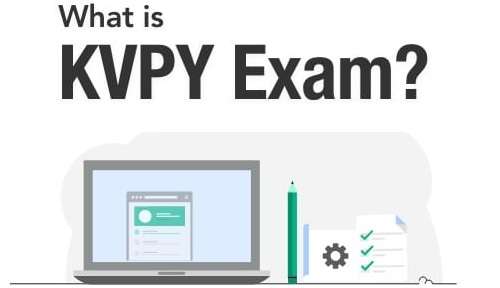The Kishore Vaigyanik Protsahan Yojana (KVPY) exam serves as a platform to encourage students to explore their scientific curiosity and pursue careers in research. It is designed to recognize and reward those who possess not just academic brilliance, but also a genuine interest in contributing to the advancement of knowledge in subjects like Mathematics, Physics, Chemistry, and Biology.
Introduction to KVPY Exam

The Kishore Vaigyanik Protsahan Yojana, commonly known as KVPY, is a prestigious scholarship program and examination in India that nurtures young minds with a passion for science and research. Established by the Department of Science and Technology (DST), Government of India, KVPY aims to identify and support talented students who exhibit exceptional aptitude in the field of basic sciences.
Eligibility Criteria
Stream | Eligibility Criteria |
|---|---|
| SA Stream | Students currently in Class 11 (Science stream) |
| Must have a minimum of 75% marks (65% for SC/ST/PwD) | |
| Must be studying science subjects in Class 11 | |
| SX Stream | Students currently in Class 12 (Science stream) |
| Must have a minimum of 75% marks (65% for SC/ST/PwD) | |
| Must be studying science subjects in Class 12 | |
| SB Stream | Students in the first year of an undergraduate program |
| Must have a minimum of 60% marks (50% for SC/ST/PwD) | |
| Must be pursuing a basic science course |
Exam Pattern
Aspect | Details |
|---|---|
| Mode | Computer-Based Test (CBT) |
| Duration | 3 hours for each paper (Morning: SA, Evening: SB/SX) |
| Medium | English and Hindi (for SA and SX) |
| English only (for SB) | |
| Sections | Mathematics, Physics, Chemistry, and Biology |
| Question Types | Multiple Choice Questions (MCQs) |
| Total Questions | 80 questions in each paper (SA, SX, SB) |
| Marking Scheme | Correct answer: +1 mark |
| Incorrect answer: -0.25 marks | |
| Unanswered: No negative marking |
Syllabus
SA Stream
Subject | Topics Covered |
|---|---|
| Mathematics | Number Systems, Polynomials, Geometry, Probability, etc. |
| Physics | Motion, Work, Energy, Sound, Light, Electricity, etc. |
| Chemistry | Elements, Compounds, Metals, Non-Metals, Acids, Bases, etc. |
| Biology | Cell Structure, Genetics, Plant Physiology, Human Physiology, etc. |
SX and SB Streams
Subject | Topics Covered |
|---|---|
| Mathematics | Real Numbers, Coordinate Geometry, Vector Algebra, etc. |
| Physics | Mechanics, Thermodynamics, Optics, Electromagnetism, etc. |
| Chemistry | Chemical Bonding, Organic Chemistry, Thermodynamics, etc. |
| Biology | Genetics, Evolution, Ecology, Human Biology, etc. |
Admit Card
Downloading: Admit cards are usually available for download from the official KVPY website. You’ll need to log in to your account using the credentials provided during the application process.
Contents: The admit card will include details such as your name, roll number, photograph, exam date, timing, venue, and important instructions.
Verification: It’s important to verify all the details on the admit card. If you find any discrepancies, contact the KVPY authorities for corrections.
Print and Preserve: After downloading the admit card, take a printout and keep it in a safe place. You’ll need to present it at the exam center and during the interview, if shortlisted.
Exam Centers for Interview
North Zone | South Zone | East Zone | West Zone |
|---|---|---|---|
| Delhi | Bengaluru | Kolkata | Mumbai |
| Chandigarh | Chennai | Bhubaneswar | Pune |
| Jaipur | Hyderabad | Patna | Ahmedabad |
KVPY Exam Result
Officials will announce the result of the qualifying exam on the official website of KVPY.
Based on the performance in the aptitude test, the shortlisted students will be asked to appear for the interview round.
The final result will be announced for those who clear both the qualifying test and the interview. 75% weightage will be given to the skill test and 25% weightage to the interview.
Candidates can also check their final results from the official website.
Selected candidates will be awarded the fellowship after the verification of their documents and qualifications.
FAQs
KVPY has three streams: SA (Class 11), SX (Class 12), and SB (First year of undergraduate studies).
The syllabus for KVPY is based on the NCERT curriculum of classes 10, 11, and 12. It covers topics from Mathematics, Physics, Chemistry, and Biology.
Yes, you can apply for KVPY and other exams, but make sure the exam schedules do not clash.
Students in Class 11, Class 12, and the first year of undergraduate courses in basic sciences can apply for KVPY based on the eligibility criteria for different streams.
Conclusion
The KVPY exam is not just an assessment; it’s a gateway to nurturing your passion for science and research. This scholarship program, initiated by the Department of Science and Technology, offers an incredible opportunity for young minds to explore the realms of knowledge, challenge their intellect, and pave the way for a promising academic and research career.
 60 minutes of Duration
60 minutes of Duration 100 Questions
100 Questions Instant Report
Instant Report 4 Dimensions
4 Dimensions 500+ Career Options
500+ Career Options 1M+ Test Taken
1M+ Test Taken




